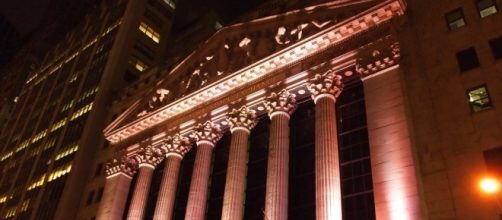President Donald Trump is partially correct in his assertion that the recent strong performance of the stock market is a result of his election and policy goals, says Cenk Uygur, host and co-founder with The Young Turks. Over the past six months, the Standard & Poor's 500 Index has gained 16.9 percent, a robust performance considering that, according to Investopedia, the index has averaged about 9.5 percent annually through its existence. Mr. Uygur describes the Stock Market as "booming."
The 46-year-old TYT host noted that Trump has claimed responsibility for the seeming strong performance of the stock market, and the economy, which Joseph Sanberg, with Aspiration, explained is not the same thing.
Uygur observed that the beginning of the president's term in office coincided with a strong economy, which he attributed to former President Barack Obama's eight years in office. By comparison, he said that former President George W. Bush handed Obama "an absolute disaster."
Trump at least partially behind strong stock performance
Differentiating between "being responsible," and deserving "credit," for the recent strong performance in stocks, Uygur characterized the recent uptick in the market as a "sugar high," feeding off short-term thinking, with traders buying up stocks on the president's promises of fewer regulations and lower taxes. The TYT founder stated a belief that following such a strong, hype-fueled move, a day of "reckoning" will come.
Uygur observed that markets are being "artificially" inflated, "not based on sound economic principles," but with hype, and "goodies." He cited historical precedents that such periods of market activity are followed by crashes. Mr. Sandberg asked TYT viewers to consider that equity markets are not a "reflection of the economy's health." He explained that the two are related, but more important to the health of the economy is the profitability of corporations.
Investopedia reports that stock market indices are "leading indicators," where participants are looking into the future to place values on stocks. A strong stock market today speaks more toward expectations of a strong economy 12-18 months down the road. Once the strong economic numbers are reported, traders will already be looking farther ahead, possibly selling stocks, and sending averages down, while the actual economy is peaking.
A strong stock market does not necessarily equate to a strong economy
Sanberg suggested the possibility of a future marked by booming corporate profits, yet where average Americans "struggle." "Stock market up, does not mean economy good, for most people," Joseph Sandberg stated. He sees a possibility that the market could continue to rise through the Trump presidency, with average Americans being "left behind." Uygur, seemingly disagreeing with Sandberg, predicted that the stock market will "crash," and that current speculation is not sustainable.
The TYT panel discussed one of the problems facing the future plans of corporations is that many Americans simply don't have money to spend. Sanberg sees people who do have money facing a different problem of running out of things to spend it on.
He described an "irony" in the fact that progressive political policies designed to put more money in the hands of middle- and lower-income earners can help drive the profits of corporations in the future. He described this as "economics that are good for everyone."
Ben Mankiewicz, with TYT, cited research stating the most Americans don't have the resources to weather a "$700 financial shock," and held this up as evidence that most would not be in a position to buy stocks. Mr. Mankiewicz added that the president is "unstable" and that "instability is not something the market likes."

